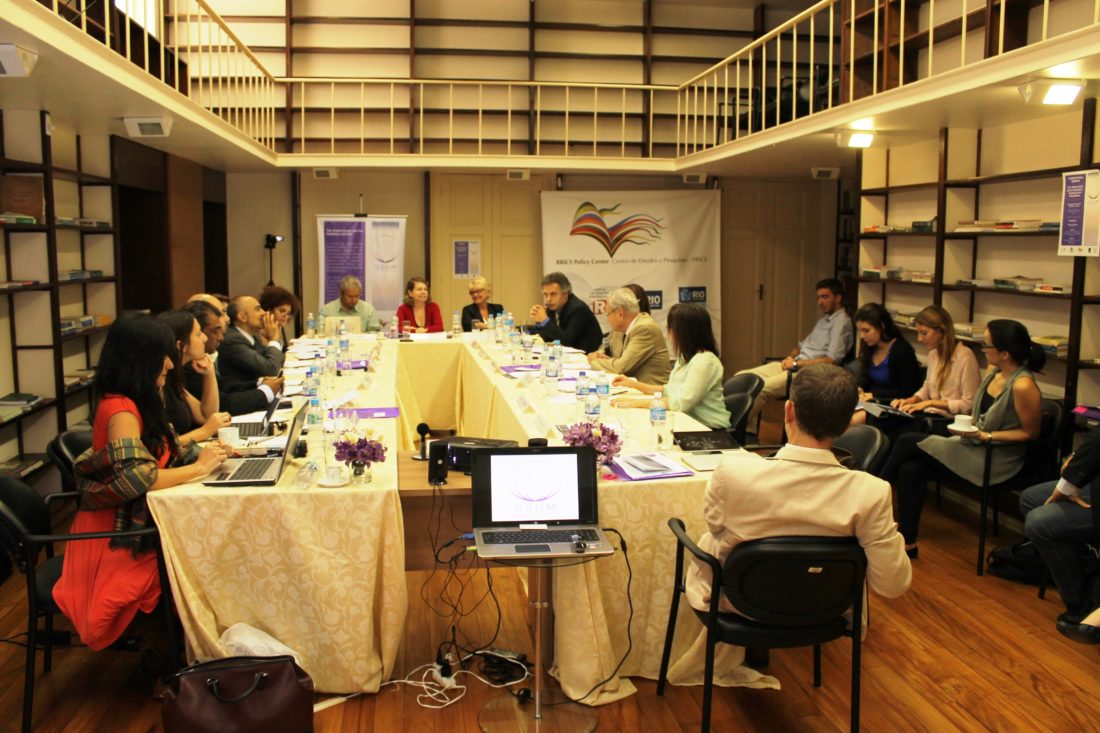
International Seminar: “The Global South Unit for Mediation: challenges and potentialities”
The GSUM international seminar “The Global South Unit for Mediation: challenges and potentialities” took place during the 5th and 6th of December, 2013 at the BRICS Policy Center in Rio de Janeiro. It aimed at reflecting on and discussing the importance of international mediation, and the need of fostering the study and practice of international mediation in countries that are not yet significantly involved in third-party assisted negotiation processes aiming at the constructive resolution of disputes. The event had the privilege and honor to have as panelists, discussants, and participants in general, a select group of eminent and experienced professionals, academics, and authorities, whose respective knowledge, practice, and expertise in the field of international mediation greatly contributed to the success of the event.
During the seminar, all participants had the opportunity to share their points of view, and to map the field of international mediation, discussing the study and deployment of mediation practices by international organizations. Also, the debate on mediation initiatives within the Global South, most specifically concerning the Turkish, African and Latin American experiences in managing/transforming conflicts, as well as a reflection on expectations, opportunities and challenges regarding Brazil´s involvement in mediation processes, were broadly discussed in the event.
Click here to see the photo gallery
The program of the GSUM International Seminar can be found in the link below. Shortly, we will also make available in our website an interview given during the event by Prof. William Zartman, Jacob Blaustein Professor Emeritus of International Organizations and Conflict Resolution at SAIS, and Mr. Vasu Gounden, Executive Director of the African Centre for the Constructive Resolution of Disputes (ACCORD), in which they comment about their respective professional practice in the field of international mediation and their perspectives on the role of the Global South in this specific field of international practice and knowledge.

